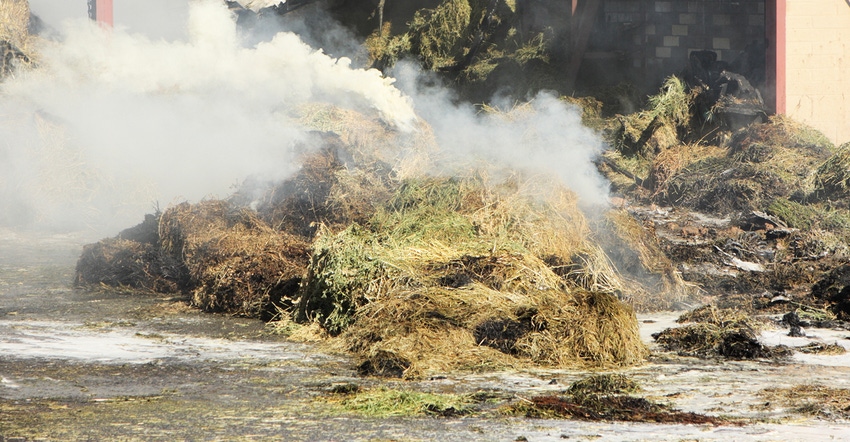
High-moisture grass baled above 24% moisture can cause spontaneous combustion. Overheated bales can burn down a hay barn.
Craig Roberts, University of Missouri forage specialist, says frequent rains this year helped grass growth, but it's been bad for making hay. He's part of the team on a weekly MU Extension teleconference between state and regional specialists.
Even if damp bales don't go up in flames, nutrient quality cooks out of hay. Heat destroys carbohydrates and makes proteins indigestible to livestock.
"It's been hard to find more than a two-day time with sunshine to cure hay," Roberts says.
Pat Guinan, MU Extension climatologist, says May is normally the rainiest month on average. This year breaks rain records. Some places, particularly in southwestern Missouri, got more than 25 inches of rain in May. More rain remains in forecasts.
Missouri farmers need hay after two drought years depleted their stored feed. With short drying periods, farmers who cut hay shouldn't rush to bale it while it's still moist. Just accept the rain and then let the hay dry.
"Rain removes some soluble carbohydrates, but proteins remain intact when moist," Roberts says. "Poor hay feeds better than moldy hay resulting from damp baled hay."
All hay carries bacteria. Some thermophilic, or heat-loving, bacteria cause fires in confinement. Hay should not be baled above 20% moisture, Roberts said. Baling at 25% to 30% moisture asks for trouble.
Haymaking varies widely across Missouri. If producers were lucky enough to harvest first-cutting hay, that removed low-quality seed stems. Second-cutting hay should be higher quality without stems.
"We may make lots of hay, but it's not high-quality hay," Roberts says.
Dailey is a retired emeritus professor with the University of Missouri. He writes from Columbia, Mo.
About the Author(s)
You May Also Like




